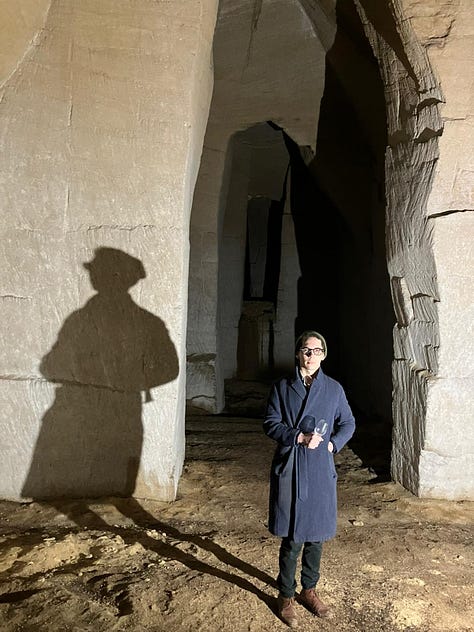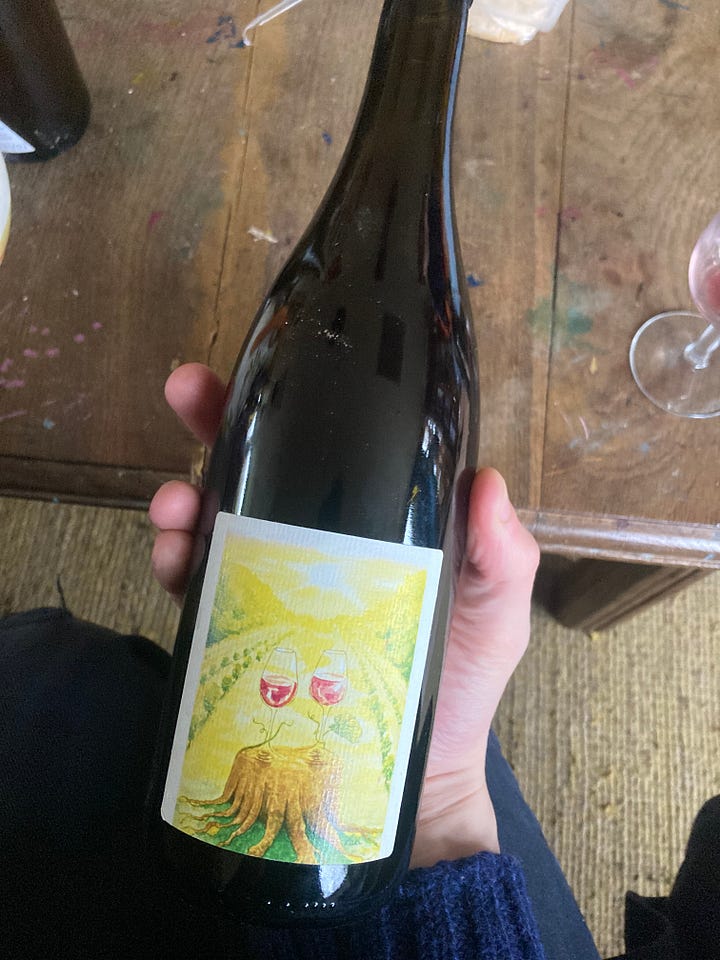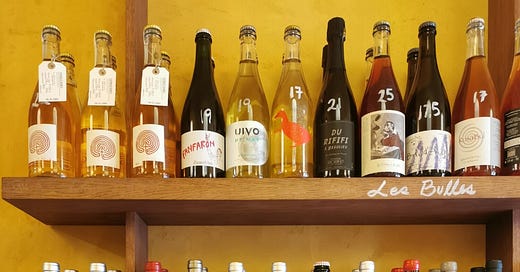In the cellar with... Nathaniel Ratapu
Let’s push the boundaries of exhilaration as we ask Nathaniel Ratapu, owner and manager of Rerenga Wines, a few questions.
Wine accompanies the moments of our lives, from the most intimate to the most memorable. To explore this connection and introduce you to new cuvées, I interview winemakers, sommeliers, and enthusiasts about themes linked to the emotions of different occasions.



Originally from Gisborne, New Zealand, Nathaniel Ratapu founded Rerenga Wines in Paris as a space for engaged and thoughtful drinking—but also as a place of resistance. More than just a wine shop, Rerenga is built on an anti-racist, anti-sexist, and anti-homophobic ethos, not as a token commitment, but as its very foundation. It is both a refuge for ideas and a home for great wines, where political and cultural conversations flow as naturally as the bottles on its shelves. With a deep commitment to independent producers, a respect for the land, and a refusal to conform to industry norms, Rerenga regularly hosts tastings, talks, and encounters with winemakers, writers, and philosophers. But this sense of purpose never comes at the expense of pleasure—if anything, it enriches it. Here, great bottles and meaningful discussions go hand in hand.
For this sixth episode, Nathaniel Ratapu, owner and manager of Rerenga Wines in Paris, has taken on my wine-themed Proust questionnaire.
What do you think is the greatest virtue of wine?
Wine's greatest virtue is its capacity to transport us, however briefly, off this mortal plane. Whether that escape takes us to a different climate, a different era, a different culture or even a different state of being, a good wine never leaves us stationary.
…And what bigger flaw could there be?
A wine that is intransigent.
Which vintage for a special occasion?
2020 is a vintage of bounty and exuberance that, once bottled, was a bit like us in that fateful year, trapped and tense. Now the wines are singing and letting loose their rich fruit, their hedonistic inclinations and, while in the right hands, keeping a buoyant acidity.
…And for a non-occasion?
2022s babes ! A tough year for everyone with scorching temperatures in the vines and then really difficult fermentations in the cellars but, now with some time behind their wings, these wines are the kinds of beauties that have the quirks and surprises of an ideal dinner party guest, ready to shock you out of normalcy and make you second guess your own aesthetic proclivities.
Which wine for love?
I'd choose "Un après midi d'été" 2022 from Romain and Lucie Verger of Le Thio Noots (Anjou, France). Love should take one's breath away, but also warm the body from the toes all the way to the tips of our hair. A burning, aching Gamay that scurries like a salamander in heat, with its green peppery eyes scintillating.


…And for an amicable breakup?
I'd choose "Catifea" 2023 from my friends Tom et Miha de L'Absurde Génie des Fleurs (Bédarieux, France). A wine of resounding comfort, but one that speaks to a history of affection and struggle. Brambly, a touch rich, and then unexpectedly vigorous, this wine is the bittersweet delight of finding a juicy mulberry while wandering in the forest, a reminder that while our paths have diverged, we can still find ourselves and forge onwards.
What about a wine for my father, who is convinced he doesn’t like natural wine?
I don't necessarily agree in "tricking" people into trying natural wine: if someone is convinced they are against natural wine, I'd rather interrogate from where their resistance stems. Natural wine isn't an aesthetic, it's an ethos, it's a revelation about what constitutes the parameters of 'quality'. (I think it's also worth interrogating why we assume that fathers will be more contraian towards natural wine than our mothers, as if the stench of consumer-capitalism were absorbed only by men?) BUT. Should we play the exercise, I'd choose "Le Clos" 2020 from Béatriz Papamija of Clos Kixhaya (Chinon, France). A Cabernet Franc that has such an astute POV, it's the wine for the fan of a well made Old Fashioned, of someone who enjoys their blazers corduroy, their car seats leather, their books always hardcover.


A bottle to gift someone who doesn't like wine?
I think even the most disinterested can't help but be entranced by the late harvest Chenin ("Tardive" 2018) of Matthieu and Chloélie from Chants Jumeaux (Anjou, France). It's the saltiest sweet wine I've ever tasted, the wine that begs a platter full of fat, milky oysters. If you don't crack a smile with this one, I've always got some gin squirreled away somewhere.
What’s your definition of the French word ivresse, which means both exhilaration and inebriation?
Ivresse is a transformation of our state of consciousness. We can experience ivresse without even necessarily being drunk on alcohol: it can come from heady love, from a dish triggering a potent sense memory, from even cathartic release on the dance floor. Ivresse is a loss of imposed control.
Where’s the best place on earth to taste wine?
In the depths of a limestone cellar dug into a cliff face. Something magical happens when you are drinking wine whose grapes came from the very geology that surrounds you while you are imbibing in it.
... And, in your opinion, who is the best companion to enjoy a glass of wine with?
Someone with whom you are not afraid to be vulnerable. Vulnerability is the best state for enjoying a glass of wine.
Last but not least, in the world of wine, is there a particular work you would personally like to highlight?
I'd like to highlight the work of Paye Ton Pinard, an association that raises awareness of (and actively challenges) sexual discrimination in the wine industry at all levels (winemaking, sommellerie, wine selling, and wine consumption.) The sheer fact that they are so frequently judicially menaced and dismissed from wider wine conservations demonstrates the necessity of their work. Paye Ton Pinard's work also acknowledges and celebrates the diversity of women in the wine industry, raising awareness for intersecting forms of discrimination (racism, class, disability, homophobia and transphobia.)
Rerenga wines
3 Rue de la Fidélité, 75010 Paris
Open everyday
www.rerengawines.com
+33 6 42 34 06 92




